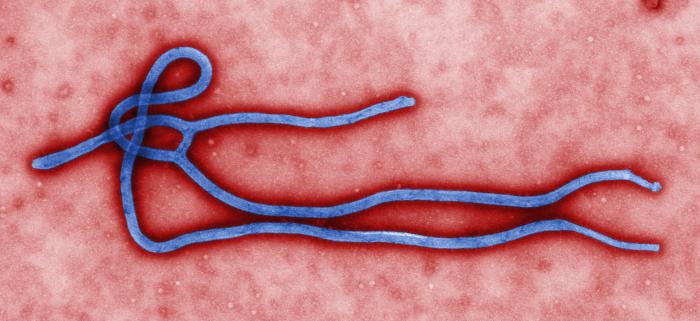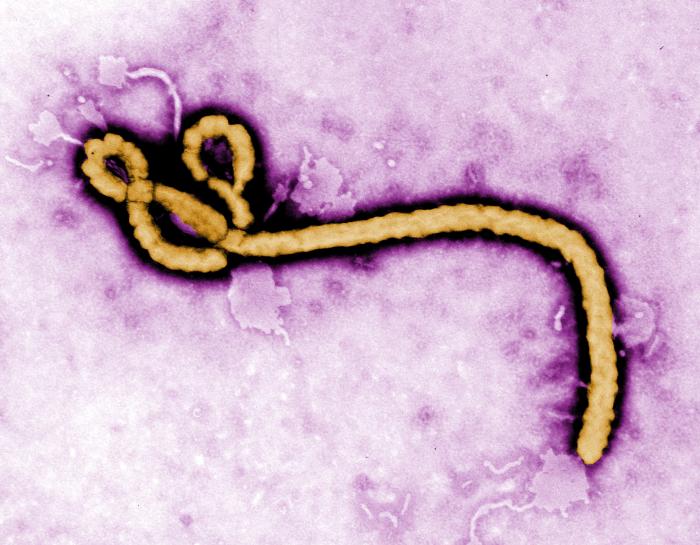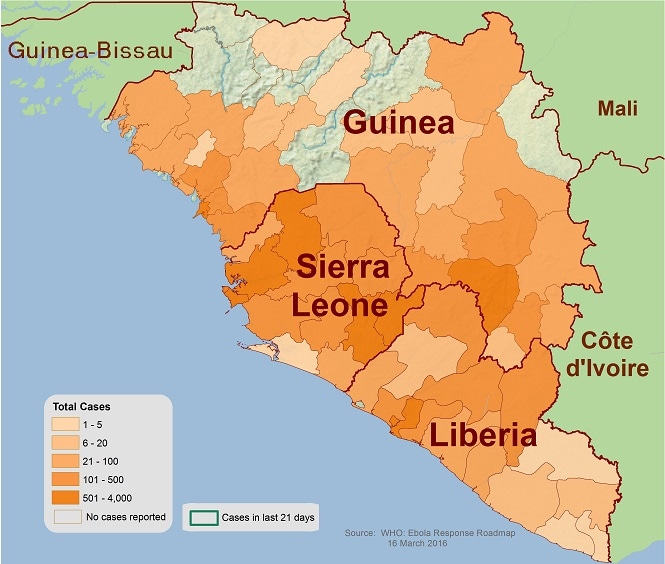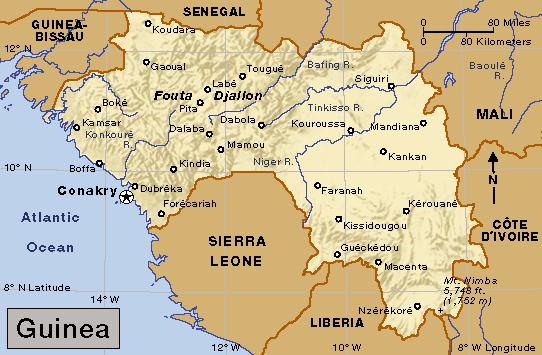Though Out of the Headlines, Ebola Still Threatens in West Africa
Thursday, July 30th, 2015July 30, 2015
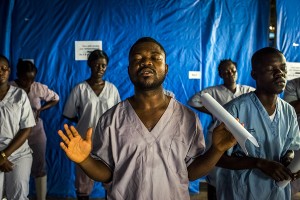
Health workers pray before the start of their shift at an Ebola treatment center in Liberia, on Oct. 6, 2014. Daniel Berehulak was awarded the Pulitzer Prize for feature photography on April 20, 2015, for his coverage of the Ebola outbreak in West Africa for The New York Times. Credit: © Daniel Berehulak, The New York Times/Redux Pictures
The world’s largest and most deadly outbreak of the Ebola virus is not yet ended, even as coverage of the epidemic has faded from news headlines in most countries. The outbreak that began in West Africa in 2014 continues, as health care agencies struggle to contain the disease. In the first half of 2015, the World Health Organization (WHO) reported between 20 and 30 new Ebola infections each week in Guinea and Sierra Leone. Before this outbreak, such a rate of Ebola infection would have been considered a seriously dangerous outbreak. Today, it is a sign of progress. During the worst days of the West Africa outbreak, hundreds of infections were reported each week.
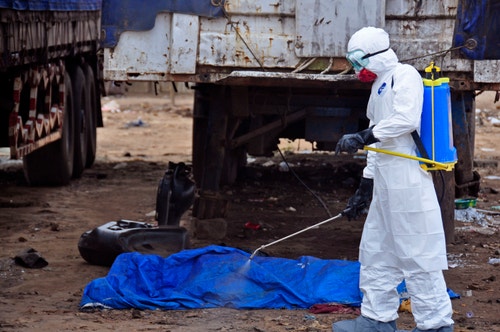
A public health worker sprays disinfectant on the body of a person thought to have died from Ebola virus infection during the 2014 outbreak in West Africa. AP Photo
In humans, Ebola hemorrhagic fever causes illness marked by fever, headache, diarrhea, vomiting, and massive internal bleeding. Symptoms appear within 5 to 10 days of infection. There is no known cure or vaccine for Ebola. Fatality rates for Ebola infection vary. In early outbreaks, about 80 to 90 percent of people who became infected died. Prevention efforts involve educating people about how the virus is transmitted and isolating infected individuals.
Nearly all Ebola infections in the 2014 outbreak occurred in the countries of Guinea, Liberia, and Sierra Leone. Since the outbreak was first reported in 2014,WHO officials tallied a total of 27,748 Ebola infections. The outbreak has caused 11,279 deaths, including more than 500 among health care workers. Despite the risk, American and European health care workers continue to travel to west Africa to assist in the fight against the disease.
Although the recent decline of new infections indicates health workers have gained the upper hand in the West African outbreak, the danger has not yet passed. More than 2,000 people who may have been exposed to the Ebola virus remain under watch. These patients must be monitored for 21 days for doctors to be sure they are free of infection. Health officials know that a single missed case can spark a new cluster of infections that can spread rapidly. In West Africa, where the deadly disease has strained an already poor health care system to the limit, the risk of a renewed outbreak remains great.
Other Behind the headlines articles


